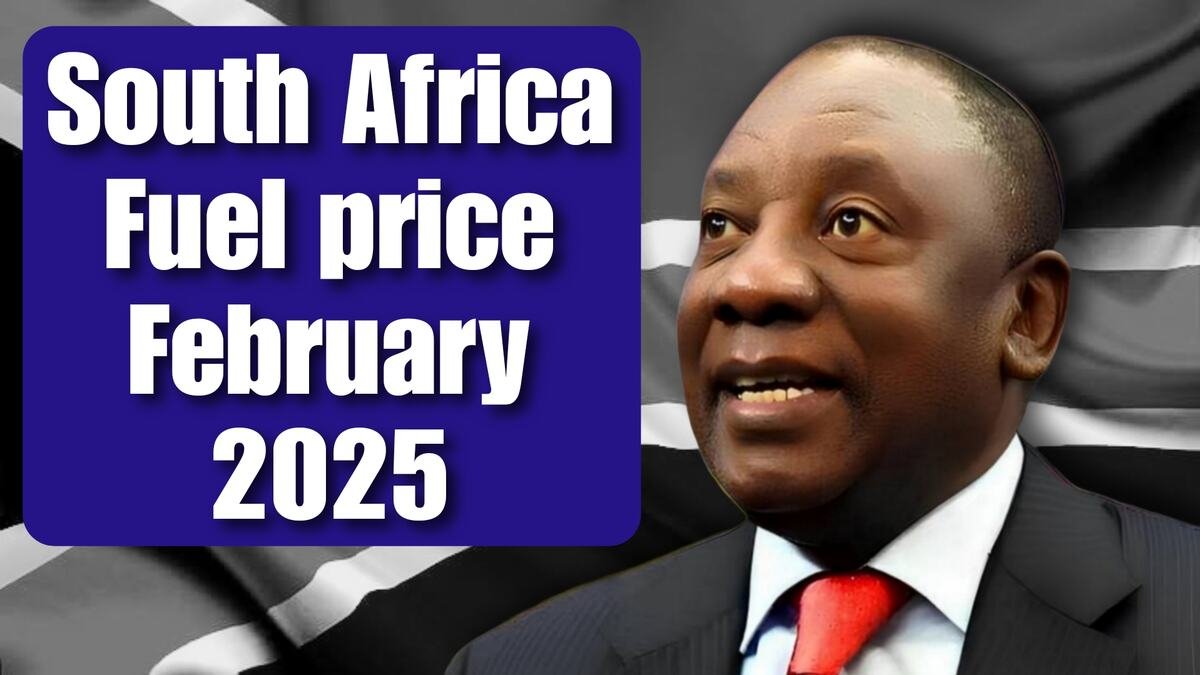As February 2025 approaches, there will be possible price increases in petrol and diesel in South Africa, as well. Warning lights blink, showing the threats in volatile global oil markets combined with local economic pressures. Rising fuels could have a ripple effect on transport, food prices, and household budgets.
The article discusses what will escalate; it gives hints about how consumers can cushion themselves against the adverse effects of such eventuality.
Warning Heeds For Fuels Price Forecast In February 2025
- Global Crude Oil Price Volatility : Many weeks have only witnessed an upward price trend for crude oil because of prevalent geopolitical tensions in oil-producing areas. Most major exporters have reduced output and experienced an increase in global demand, thus pushing prices to the highest levels for months and Predictions say that crude oil prices may be high during February, which will then affect fuel imports of South Africa.
- Rand-Dollar Exchange Rate Fluctuations : Relying more on imported fuel makes it possible for the exchange rate to become the most important factor in determining the local fuel price. It weakens the Rand against the US dollar, which, at the beginning of 2025, would steeply raise costs of fuel imports and Economic analysts say that any further depreciation of the Rand may further translate to sharper increases in fuel price in February.
- Seasonal Demand and Supply Constraints : The time after the holidays typically sees increased demand for fuel worldwide and is particularly significant in countries going through winter. At the same time, the combination of logistical issues and maintenance schedules in refineries leaves supplies to fall short and thus increases costs.
- Increasing Levies and Rates : The month supposed to be critical in determining annual adjustments of levies and taxes is the month of February. While increases have not yet been officially announced, any increases i
Potential Impact On Consumers And Businesses
- Ascendant Costs of Transport Schemes : The motorist will have to bear higher charges in terms of increased petrol and diesel costs. The public transportation operators would also increase their fares, thus affecting the daily commuters.
- Inflated Prices of Food and Goods : Transportation costs of goods, leas for perishables, are expected to increase significantly. This is bound to reflect higher priced grocery and other essential products.
- Squeeze for Small Enterprises: Companies that are logistics and delivery-based might have to deal with higher operating costs and will reduce the profit margin, leading to an increase in prices of their services.
- Household Budgets Strained : Rising costs of fuel affecting sectors would mean some households find ways to adjust budgets to cater for the new living prices.
Some Possible Solutions To Fuel Price Hikes
- Drive Smart: Don’t use the vehicle for unnecessary trips, encourage carpooling, keep vehicles well maintained to ensure efficient fuel use.
- Budget Adjustments : To accommodate increased fuel costs, the household should reorder priorities to reduce less important expenses.
- Use of Public Transport : Use public transport when possible, or at least ride share to avoid some of the fuel expense.
- Stay Informed : Getting regular updates on fuel price reviews or increases can help in planning for a big change.
Response Of Government And Industry Screws Nos into
So far, nothing has issued from the South African government about measures that will offer some cushion against the impacts of rising fuel prices. However, discussion is still ongoing about cutting fuel taxes and promotes alternative energy solutions in the long haul.
Also Read: SASSA Gold Cards To Stay Valid In 2025: What You Need To Know
